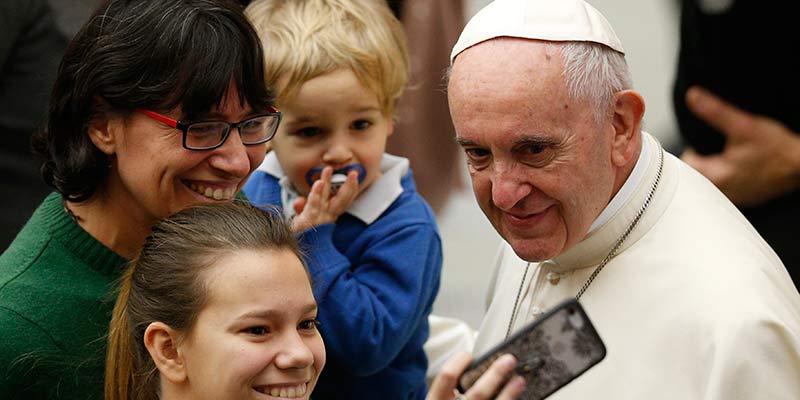Pope Francis celebrates his fifth anniversary as successor of St. Peter on March 13. The author comments on some behaviors that may constitute a danger, in his opinion, in social networks.
MAURO LEONARDI - Priest and writer
mauroleonardi.it - @mauroleonardi3
March is the anniversary of five years of the first pontificate of the story that takes place entirely in the era of the social networks. Paradoxically, the ease with which everyone can disseminate opinions has made dialogue more difficult: in one time of contrasts and extreme polarizationsIn the papacy, those who have different points of view often do not debate, but argue. The papacy is one of the places where this dynamic is most evident: as with the father of the prodigal son (Lk 15), the Pope's enemies are the "elder brothers", that is, the "catholically correct". The amore poisonous and painful cusation against the Pope is to say that he "divides and is leading the Church towards schism": a statement that would only be laughable nonsense if such a thing did not become a well-founded danger because of some who are on social networks, people who denounce the schism with words, but underneath create it.
With this I do not stigmatize those who feel the urgency to intervene to safeguard the doctrine, because it is quite licit to do so; but it is important not to judge the intentions of those who act otherwise, and not to extrapolate a phrase from the context. Taking distances It is perfectly legitimate and very useful because it ensures that there is unity and multiplicity in the Church. It is quite natural that people with many things in common - such as the Christian faith or the same vocation - can and should, in complete freedom, think differently on matters of opinion. For example, when it is said that today it is more urgent to defend people with respect to values, this opinion, which is shared by many intellectuals, may not be well received by those who have always fought to affirm the importance of principles. Francis' appeals to some resemble Jesus' words to the PhariseesThe opening to the "peripheries" is reminiscent of the mercyThe "Jesus", often considered scandalous, which Jesus used to dedicate himself to sinners.
Pope Francis’







